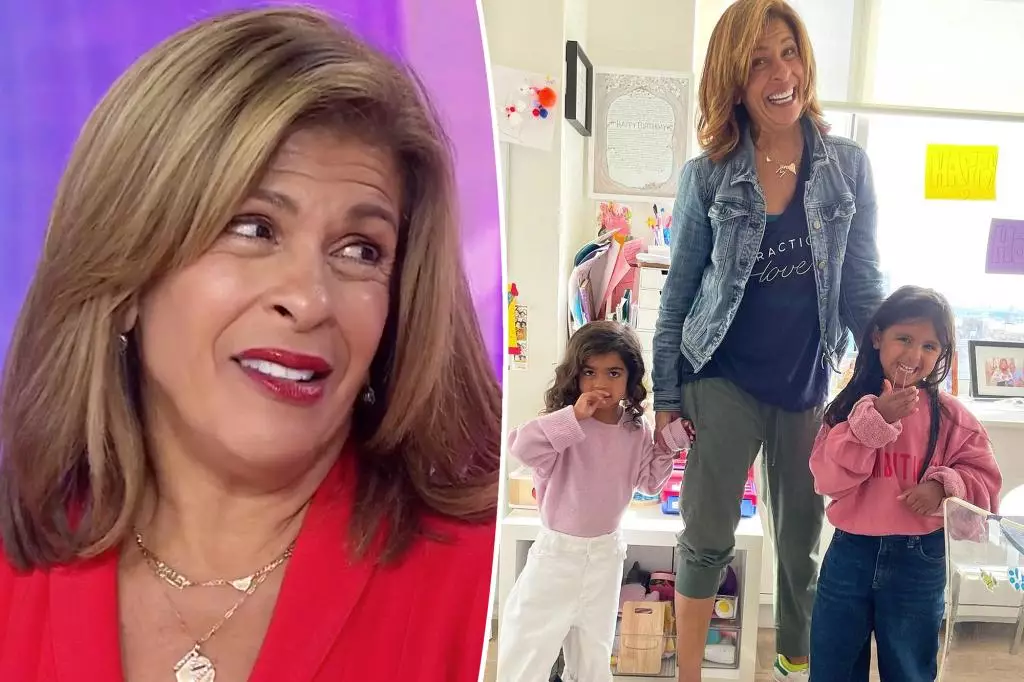In the realm of parenting, age often brings an array of misconceptions, particularly when it comes to the identity of a mother. Hoda Kotb, the vibrant co-host of the “Today Show,” recently addressed this issue concerning stereotypes tied to older mothers. During a segment on “Social Dilemmas,” she shared her experience of being mistaken for her daughters’ grandmother. While the remark may seem trivial at first glance, Kotb’s response shines a light on how perceptions of motherhood can unfairly shape one’s identity based on age.
Kotb’s encounter serves as a reminder of the societal tendency to lump individuals into expected roles, often dismissing the vitality and capability of older parents. She confidently stated, “No, I’m their mom,” highlighting the importance of asserting one’s authentic identity in the face of such misconceptions. This affirmation resonates with many older mothers who may grapple with similar misjudgments. The necessity for correction is not just a matter of personal pride but reflects a deeper need to advocate for one’s role—and to model self-advocacy for their children.
In her advice, Kotb encourages older mothers to embrace their unique experiences. She recognizes that age does not necessarily equate to diminished competence or love. In fact, her reflections urge a re-examination of societal norms surrounding motherhood, emphasizing that some moms might be older, yet their love, dedication, and ability to nurture remain unchanged.
Jenna Bush Hager, her co-host, humorously supported Kotb, pointing out that all mothers share common challenges, regardless of age. This lighthearted interaction brings a necessary levity to an otherwise serious topic. The acceptance of diverse parenthood experiences is crucial in fostering an inclusive atmosphere for mothers everywhere, reflecting a broader understanding that parenting styles and approaches can vary immensely.
Kotb’s insights extend beyond her personal experience; they encourage broader dialogue about how parents interact with society. She emphasizes that the way we respond to misunderstandings can significantly influence our children’s perception of themselves and their family dynamics. “Your daughter won’t be reacting to what the person said,” she notes, “she’ll be reacting to how you’re reacting.” This statement underscores the profound impact parental behavior has on children’s self-image and sense of belonging.
Moreover, Bush Hager’s addition that these conversations reflect parents’ feelings is equally important; expressing pride in one’s motherhood status is a fundamental part of nurturing identity in children. The positive reinforcement that comes from pride in one’s role can shape how children perceive themselves and their family environment.
As Kotb demonstrated, being an older mother can have its unique challenges. The conversations surrounding age and parenthood carry weight, especially when faced with scrutiny and societal judgment. Her journey as a mother, having adopted Haley at 52 and Hope at 54, emanates a powerful narrative that old stereotypes need to be dismantled.
Ultimately, it’s the attitudes of both mothers and society that will dictate perceptions of age and identity in parenthood. By standing firm against preconceived notions and celebrating the beauty of diverse motherhood experiences, individuals like Kotb are paving the way for a broader acceptance of all parenting styles—regardless of the mother’s age. This shift not only honors the journey of every mother but reinforces the notion that love and commitment are ageless.


Leave a Reply